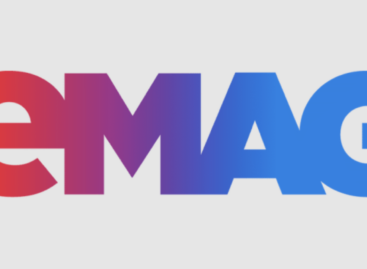Dr. András Tóth: The GVH also actively deals with artificial intelligence
There is a lively international interest in the market research of the Economic Competition Authority, which was launched by the national competition authority at the beginning of the year, and in which it examines the effects of artificial intelligence on market competition and on the business decisions of consumers. This is also discussed in the latest episode of the GVH Podcast, in which Dr. András Tóth, Deputy President of the Economic Competition Authority and President of the GVH Competition Council, also talks about how the application of artificial intelligence technologies can also affect the prevalence of so-called small languages, such as Hungarian, by that self-learning systems typically “feed” on the major world languages.

On August 1, the regulation of the European Union regulating artificial intelligence, the so-called AI Act, entered into force. The legislation will have to be applied gradually, in several steps, and will become mandatory from the middle of 2026. The purpose of the regulation is to make the operation of artificial intelligence more understandable and transparent, but the regulation also raises many additional questions. Among other things, Dr. András Tóth, deputy president of the Economic Competition Authority, spoke about this in the latest episode of the GVH Podcast. During the conversation, the chairman of the GVH Competition Council also suggested that over-regulation of artificial intelligence could cause a competitive disadvantage for European businesses.
In the second part of the podcast conversation, which has just been published, Dr. András Tóth pointed out that more and more dimensions of our lives are being transferred to the online space as a result of the artificial “dataization” process, which is why this clearly affects one of the important aspects of competition between companies, the issue of efficiency. The president of the GVH Competition Council stated that “companies that want to grow cannot avoid this.” He added that companies that can adapt can increase their efficiency. He referred back to what was said in the previous episode of the GVH Podcast, according to which, among other things, an important question is how European regulations affect the costs of European companies related to the application of artificial intelligence technologies.
Related news
GVH imposed a fine of 235 million forints on eMAG Magyarország Kft.
🎧 Hallgasd a cikket: Lejátszás Szünet Folytatás Leállítás Nyelv: Auto…
Read more >The GVH launched an accelerated sector investigation into the cooking oil market
🎧 Hallgasd a cikket: Lejátszás Szünet Folytatás Leállítás Nyelv: Auto…
Read more >Related news
FAO food price index falls for five months
🎧 Hallgasd a cikket: Lejátszás Szünet Folytatás Leállítás Nyelv: Auto…
Read more >








